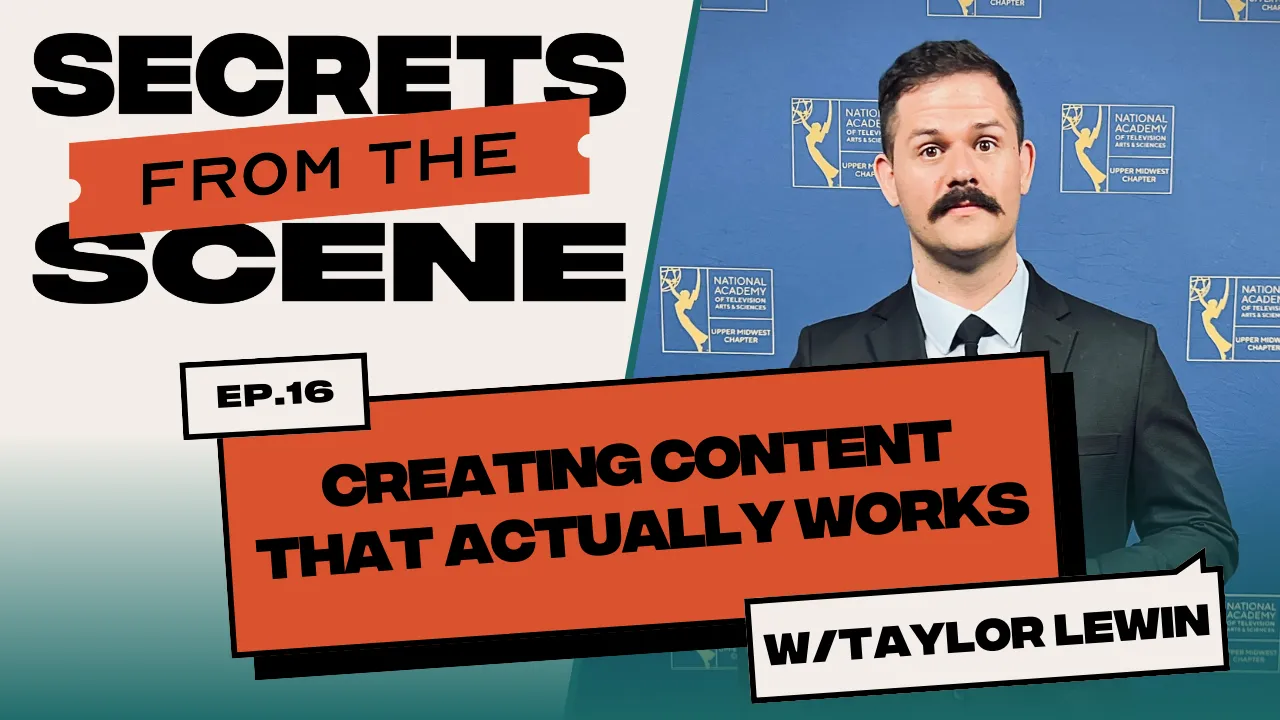Show Notes
Being an independent artist today is becoming synonymous with being a content creator. As much as many of us would like to deny that fact, it’s happening. But it doesn’t have to be overwhelming. If you approach it right, it might end up being your differentiator that connects people to your music.
I think the first step to “getting in the game” is actually to step backward and figure out what you want it to look like for you. If you start by asking yourself, “How can I connect/help/entertain the people I want to reach?” instead of, “How do I get my song to go viral?” you may end up with a strategy that is sustainable, and in turn, actually yields results for you someday.
Emmy award-winning composer and sound editor Taylor Lewin sat down with me to talk all about content creation. Taylor has a diverse background in the scene, from playing in bands to producing records, and from making YouTube videos to now owning his own post-production company, Underscore Audio, where he works on content for global brands regularly.
Taylor has always been a creator in some fashion, and I wanted to get his take on what makes content “good.” Our conversation went way deeper, and I really enjoyed the mindset and strategy tips that came of it. In this episode, we discuss content creation topics such as:
- Establishing the right mindset in content creation
- Leaning into your uniqueness and strengths
- Seeking objective feedback to grow
- The importance of consistency
- The power of collaborations
- The role of experimentation
If you’ve been struggling with where to begin as a “content creator” or feel like your efforts haven’t yielded any results, this episode will hopefully help give you some motivation and advice to get you started or improve your results. Enjoy!
watch now on YouTube:
Episode Links and Mentions
Connect with the Guest
Connect with Me
Give Feedback
📬 Send me a message: stephen@secretsfromthescene.com
💬 Suggest a guest or topic: podcast@secretsfromthescene.com
🎙️ Brought to you by:
--------------------------------
Thank You
This podcast is made possible by the hard work, expertise, and commitment of my team:
Max Greene and Joey Biehn. I'm forever grateful.
--------------------------------
Theme Music: "Thankful" Courtesy of LUEDVIG

